The team of SENDoc project is based on 4 partner institutions in 4 countries:
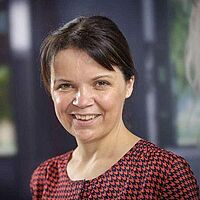
has a B.Sc. (Hons) Maths, Statistics & Computing from Ulster University, an M.Sc. (Distinction) in Industrial Mathematics from the University of Strathclyde and a Ph.D. in Mathematics and Computing Science from Ulster University. She is also a senior fellow of the HEA and also of the Centre for Higher Education Research and Practice at Ulster. Dr Joan Condell has published over 180 papers and actively secured grants from external sources with a total income over £10.8M. A sample project which Joan has successfully completed was an EU FP7 project I’m Clever (€5.9M, 2008-2013). Her research areas include imaging and digital intelligent technologies in security, wearables, energy and associated application areas. She has numerous patents filed in UK and US; and has completed trials with key industrial players with security and wearables technologies. Joan has won Innovation and Enterprise awards for this commercialisation work for creativity and bio-entrepreneur

is a Lecturer in the School of Computing and Intelligent Systems in the Department of Computing and Engineering at the Ulster University (Magee). Daniels' main research interests are in the areas of Wearable/Pervasive Sensing, Human Behavior Analysis and Sports Performance Measurement. In particular, his research is focused on applications in health and well-being and has approx. 40 published works. Daniel has worked on a number of commercial feasibility studies, and in the past has worked closely with a number of SME's and national organisations such as Irish Rugby Football Union and the Irish National Stud. Daniel is a visiting lecturer at the School of Public Health, Physiotherapy and Sports Science in University College Dublin. He is a regular reviewer for a number of International Journals such as Pattern Recognition Letters and IEEE System, Man and Cybernetics.

has a B.Eng. (Hons.) in Electronic Systems from ITESM, Mexico City campus. She has a M.Sc. in Computing and Intelligent Systems and a postgraduate certificate Researchers from Ulster University (UU). The latter includes specialty modules in Teaching at Higher Education and Project Management. She graduated with distinction and won the 8-over-8 prize for the best Master with specialism on December 2008. Her Ph.D. dissertation entitled PlayPhysics: An Emotional Student Model for Game-based Learning was one of the three runners up to attain the British Computer Society (BCS) Distinguished Dissertation award in 2013. Her research has focused on User Modelling, Sensor technologies, Human Computer Interaction, E-learning, Artificial Intelligence and Data Science. She was granted the EU AlBan scholarship and the Vice-Chancellor Research Scholarship (VCRS) at UU to pursue postgraduate studies. She has experience working internationally in both industry and academia. She was Certified Associate in Project Management by PMI from 2012 to 2017. She is Associate Fellow of the Higher Education Academy (AFHEA). She works currently as a Research Associate in Wearable Technologies in the SENDoc project mainly overseeing the demonstrations of sensor technologies with elderly patients. She is author and co-author of journal and international conference papers and book chapters in peer review publications. .
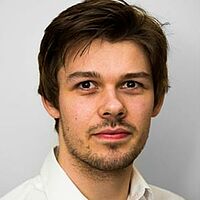
is a Research Associate in Wearable Technologies at the Intelligent Systems Research Centre, working on the SENDoc project. James' main research interests lie within reinforcement learning, stochastic sensing, and IoT research. He holds a first class honours degree in Electronics and Computer Systems from Ulster University, and is concurrently completing his PhD in Machine Learning at the same institution. In 2017, he was a visiting researcher at the Lincoln Centre for Autonomous Systems, University of Lincoln and in 2019 a visiting researcher in the Embodied Systems for Robotics and Learning group at the University of Southern Denmark. James’ current research focuses on machine learning applied to wearable sensors and IOT technologies. In his role as a Research Associate, he is also working on an EU project examining Technology Solutions in response to COVID-19 in the Northern Periphery and Arctic Area.
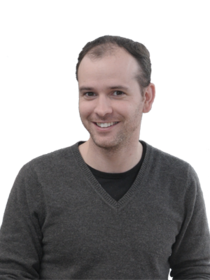
is a Lecturer in Computer Science at the University of Ulster’s School of Computing and is a member of the Computer Science Research Institute and Smart Environments Research Group. Prior to his lecturing appointment in 2013 he has been involved in a number of research projects which have been supported by funding from the UK and EU since 2001. Much of his research has been on the self-management of chronic conditions focusing on assistive technology to help improve quality of life for stroke survivors and persons with dementia. His research interests include assistive technology for the elderly, self-management and rehabilitative technologies within the health care sector.
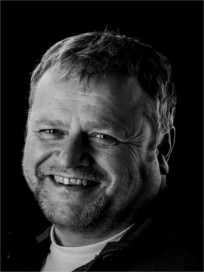
(of Rossal Research and Consultancy) works as external advisor to SENDOC, bringing his previous experience of NPA projects to help deliver the outputs of the project. David is an experienced researcher, and principal investigator, with leadership skills in international collaborative projects. He has a track record of securing significant grant funding, with a network of key contacts across northern Europe.He has worked most of his career in an academic setting, and was associate director at the Centre for Rural Health at the University of Aberdeen. He is interested in addressing issues faced in the delivery of effective remote and rural services. He now works to improve the organisation and delivery of healthcare services, hoping to make a difference to the lives of remote and rural people.
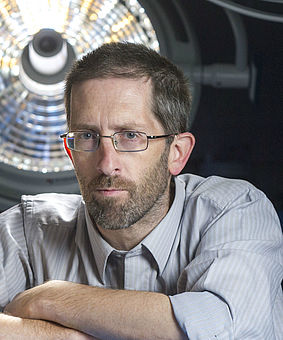
received his MEngSc degree from UCC in 2006. He joined the Interconnection and Packaging Group of the NMRC (now Tyndall National Institute) as a Research Engineer in 1993. Currently, Team Leader of the Industry Projects team in the Wireless Sensor Networks (WSN) group where his activities include working with industry to help them move up the value chain by collaborating with the WSN Group and Tyndall. As PI on the EI funded D-Systems project John has been the leader in development of the Tyndall Wireless Sensor Mote platform. He has authored or co-authored over 100 peer reviewed papers.

received the B.Sc. degree (cum laude) in information technology engineering and the M.Sc. degree (cum laude) in telecommunications engineering from the University of Salento, Lecce, Italy, in 2008 and 2011, respectively. He joined the Wireless Sensor Networks (WSN) Group, Tyndall National Institute, UCC, Cork, Ireland as a R&D Engineer in 2012. Currently, Team Leader of the “Biomechanics and Motion Monitoring” Team in the WSN Group where his research interests involve wearable technologies for healthcare and fitness, high performance wireless inertial measurement, functional motor assessment, 3D orientation estimation algorithms, data analytics and algorithms development, magnetometer calibration, activity recognition and machine learning, indoor localization, UWB and RFID technology. He is also co-author of several papers published in international peer-reviewed journals and conferences. He is a reviewer for a number of journals, conferences and funding bodies, as well as member of different engineering associations.
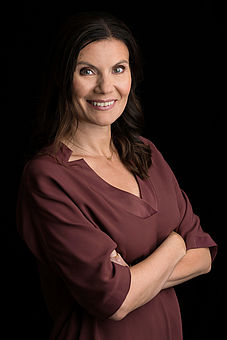
is a Adjungated Professor of Public Health, Associate Professor of Sports Medicine at Umeå University and Specialist in Rehabilitation Medicine and Senior Attending Physician Behavioral Medicine at the Northern University Hospital in Umeå. Prof. Nordström has published over 80 papers and is lead investigator in a number of projects investigating prevention of lifestyle related diseases. In addition she is the initiator to KRAFT, a MOOC platform (massive open online courses) for courses in physical activity and health. Global interests include the factors underlying physical functioning across the continuum from basic physical activities to optimal sports performance. Specifically behavioral aspects are a focus, how people change their physical activity or what people do or use to become physical activity on a regular basis
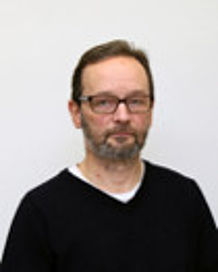
is senior Lecturer at Karelia University of Applied Science. He teaches PT-students courses of clinical reasoning, physiotherapy clinical skills in musculoskeletal disorders, functional anatomy, neuroanatomy, physiology and biomechanics. He was the Lecturer in charge of three educational projects from 2010 to 2016, which helped to develop the skills and knowledge of working physiotherapists in public health care at Kainuu and Karelia. On these educational projects, he also focused on giving direction to physiotherapists in the extended scope of practice of musculoskeletal problems. He participated building nationwide guidelines for the required competences of those educational projects from 2016 to 2017. He also conducts research and supervises theses. He is author and co-author of papers and articles in Journals and peer-reviewed publications. His expertise is on measuring the functional capacity of physiological structures and (biomechanical and physiological) activities using various equipment and collecting and analyzing health and functional capacity related data. He worked as project manager for the Karelia Regional Organization on the Assistive Technology and Accessibility Services Project (first version 2002-2003). He was member of the Ethical Committee of the Union of Health and Social Care Professional of Finland from 2013 to 2016.

has worked as a physiotherapist for the elderly (hospitals of primary health care) since 2010 in different places around Finland . She was the project manager in the pilot project at Siilainen Hospital from 2014 to 2015. Its main aim was to develop the rehabilitative approach in the nursing of older people and to enable patients to return home after discharge from a hospital. She has educated nursing staff (Ergonomic Patient Handling Card® -trainer) for several years. This training involved over 100 nurses and rehabilitation staff in North Karelia. More information about the Ergonomic Patient Handling Card® can be found at: http://www.sotergo.fi/files/688/Finnish_Ergonomic-patient-handling-card_r_- education_-scheme_HEPS.pdf. The main aim of her thesis - entitled “Active Ageing”- was to develop the rehabilitative approach in the nursing of older people and work ergonomics of the nursing staff at the Siilainen Hospital (http://www.theseus.fi/handle/10024/134496). Its most important aspect is that a human being – elderly – is seen as a whole, i.e. as a social, psychological and physical entity. She started to work as a project planner in the SENDoc project on November 2017 at Karelia University of Applied Sciences.
